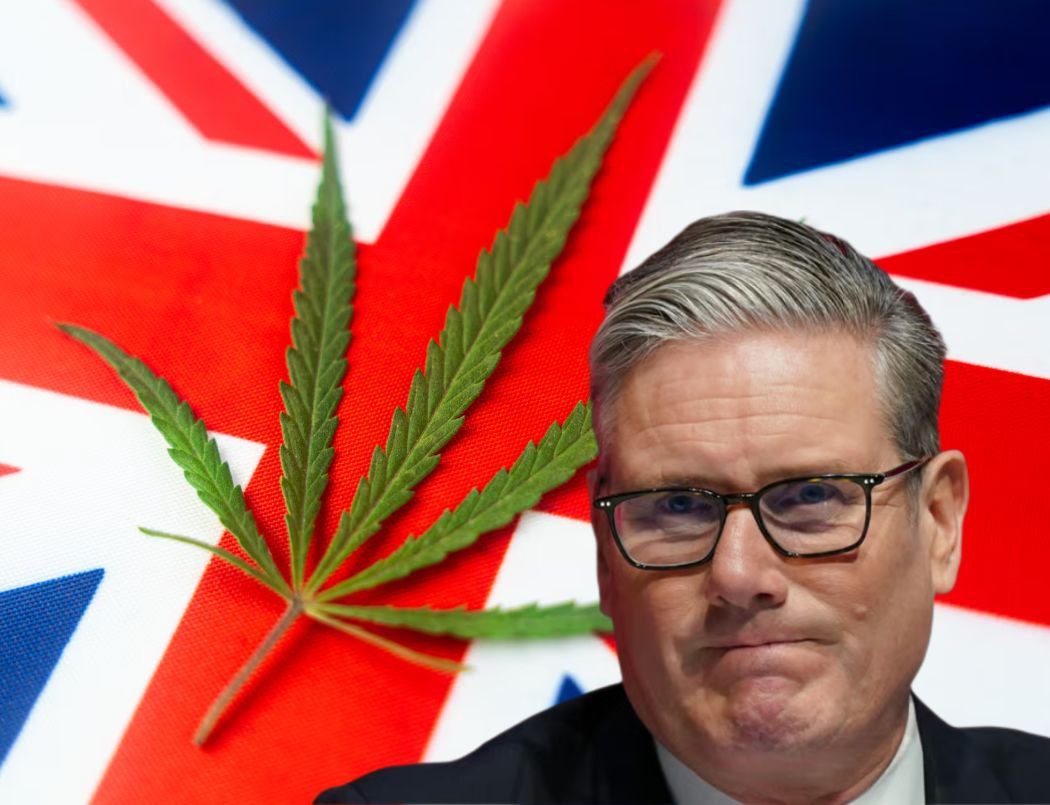Starmer Rules Out Cannabis Legalization in UK
LIVERPOOL – British Prime Minister Keir Starmer made clear during a question-and-answer session with high school students this week that his government has no plans to legalize Cannabis, a position that stands in contrast to shifting attitudes across the country.
Speaking Tuesday at the Liverpool Echo offices ahead of the Labor Party’s annual conference here, Starmer fielded queries from secondary school pupils on topics ranging from youth voting rights to drug policy. When one student asked about potential changes to Cannabis laws, the prime minister replied bluntly: “No, I’m afraid not.” He added a light touch, asking the group what response they had hoped for, before noting with a smile that a few more hands might have risen in favor without the press present. “But no, we’re not going down that route,” he concluded.
Starmer’s comments echo his longstanding reservations about reform. As opposition leader in 2023, he described the UK’s drug policy as “settled.” Since taking office after Labor’s landslide victory last year, he has shown little appetite for revisiting the matter, even as allies like London Mayor Sadiq Khan have floated pilot programs for decriminalization in the capital.
Yet data points to a widening gap between official policy and public sentiment. A May YouGov survey found 54% of Britons favor decriminalizing possession of small amounts for personal use, up from earlier years. An earlier poll that January revealed 55% overall support, including 53% among members of Parliament, for either decriminalization or full legalization. Younger cohorts drive much of the momentum: 80% of Generation Z respondents and 67% of millennials back broader access, according to 2024 research.
Economists have quantified the stakes. Studies from Transform, a drug policy think tank, project that a regulated adult-use market could generate up to £1.5 billion in annual tax revenue, while freeing up £300 million in law enforcement costs and creating as many as 27,000 jobs. These figures align with outcomes in neighbors like Germany, where partial legalization took effect this year, yielding early tax windfalls of over €3.4 billion annually and reduced black-market activity.
Critics of the status quo argue that current Class B classification, which treats Cannabis on par with amphetamines, fuels disproportionate policing and fails to address health risks through evidence-based channels. Proponents of reform, including the Liberal Democrats and Greens, point to international models as proof that regulation curbs youth use and organized crime more effectively than prohibition. Still, Conservative holdouts and Reform UK voices warn of health drawbacks, citing studies linking heavy consumption to mental health concerns.
For the global Cannabis sector, Starmer’s firmness signals continuity in a key European market, even as pressure mounts from below. With public approval nearing majority thresholds and economic incentives stacking up, the prime minister’s veto may prove temporary. History shows policy inertia can bend under sustained advocacy; witness Canada’s 2018 pivot or Thailand’s bold 2022 experiment.
Concurrently, the UK’s medical Cannabis framework continues to expand access for those, managing chronic conditions through prescribed treatments. Estimates place active patients at 50,000 to 60,000 in 2024, with projections nearing 80,000 by year-end. Recent capital inflows underscore this momentum: Mamedica, a leading specialist pharmacy in Cannabis-based prescriptions, secured $6 million in funding from Casa Verde Capital, bolstering its role in serving patients nationwide.
Overall, the takeaway is straightforward: UK’s Cannabis conversation is far from over. Investors and operators eyeing transatlantic expansion would do well to monitor parliamentary undercurrents and local experiments, where incremental wins could yet redefine the board.




































